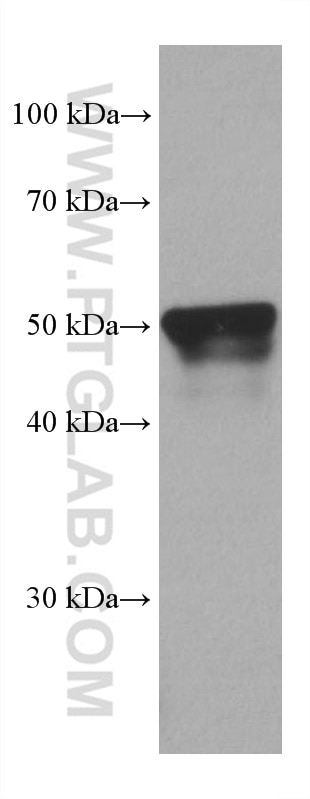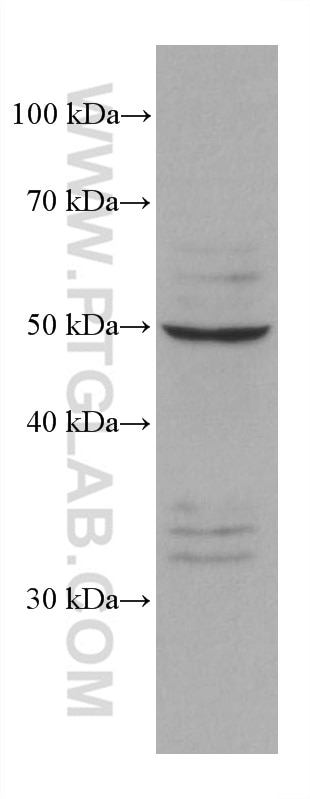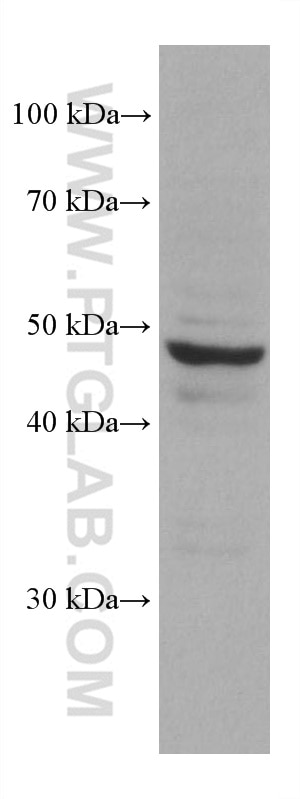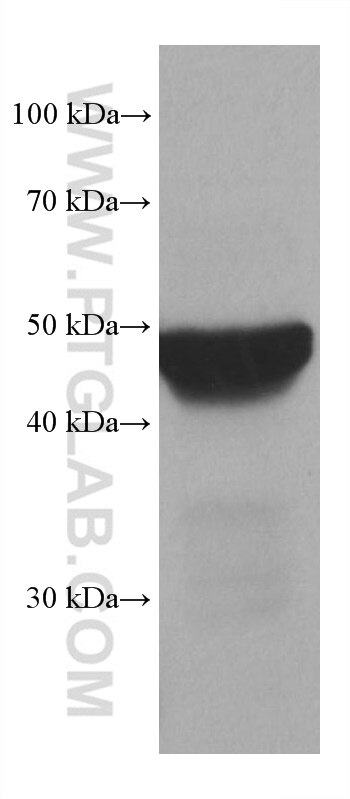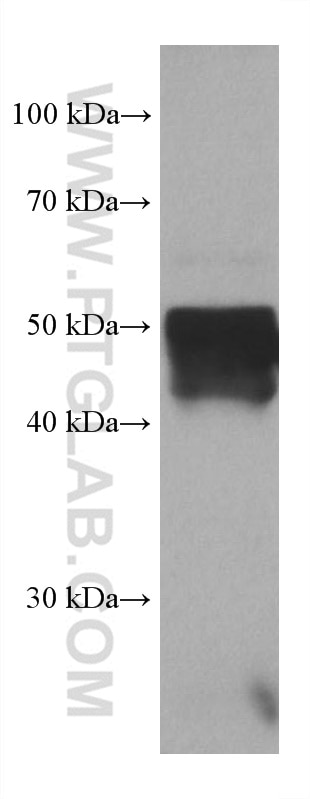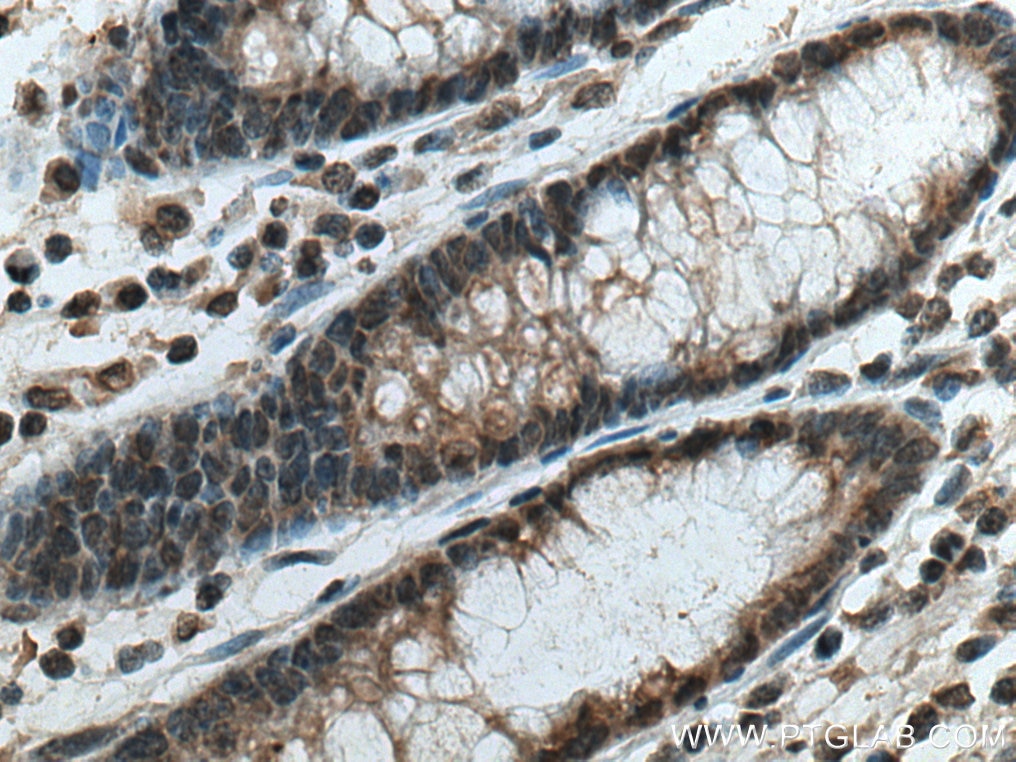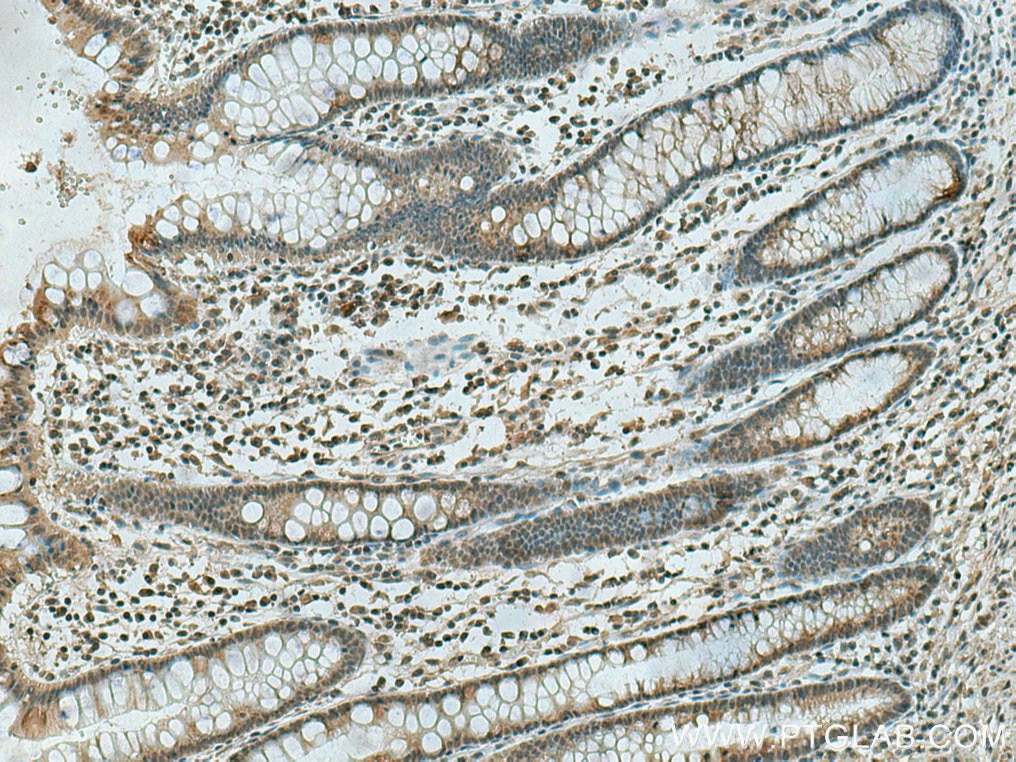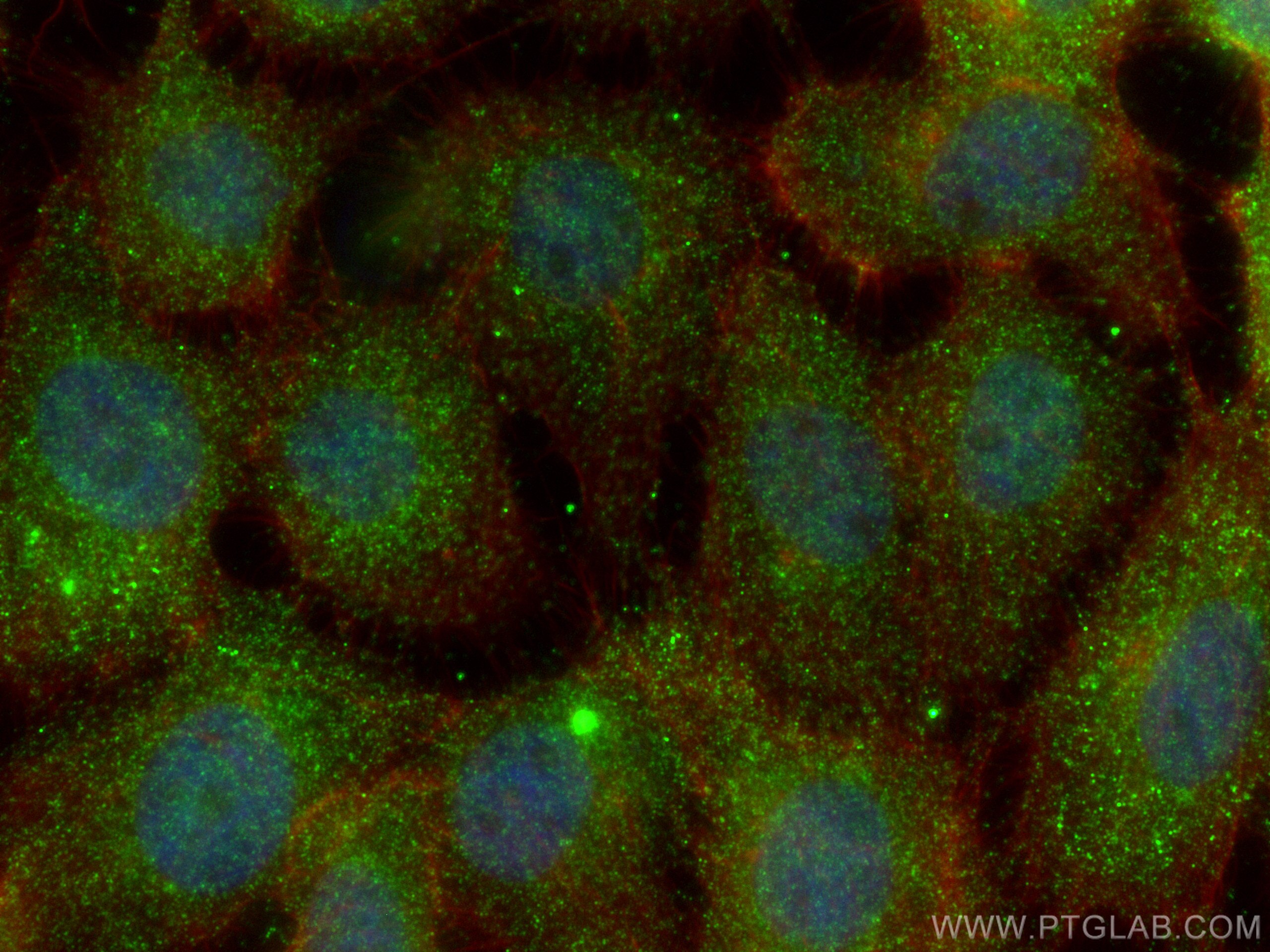PSMD5 Monoclonal antibody
PSMD5 Monoclonal Antibody for IF, IHC, WB, ELISA
Host / Isotype
Mouse / IgG3
Reactivity
Human, pig, rat, rabbit, mouse
Applications
WB, IHC, IF, ELISA
Conjugate
Unconjugated
CloneNo.
1D5F7
Cat no : 67682-1-Ig
Synonyms
Validation Data Gallery
Tested Applications
| Positive WB detected in | pig liver tissue, rabbit liver tissue, rat liver tissue, K-562 cells, HCT 116 cells |
| Positive IHC detected in | human colon cancer tissue Note: suggested antigen retrieval with TE buffer pH 9.0; (*) Alternatively, antigen retrieval may be performed with citrate buffer pH 6.0 |
| Positive IF detected in | A431 cells |
Recommended dilution
| Application | Dilution |
|---|---|
| Western Blot (WB) | WB : 1:1000-1:8000 |
| Immunohistochemistry (IHC) | IHC : 1:200-1:800 |
| Immunofluorescence (IF) | IF : 1:200-1:800 |
| It is recommended that this reagent should be titrated in each testing system to obtain optimal results. | |
| Sample-dependent, Check data in validation data gallery. | |
Product Information
67682-1-Ig targets PSMD5 in WB, IHC, IF, ELISA applications and shows reactivity with Human, pig, rat, rabbit, mouse samples.
| Tested Reactivity | Human, pig, rat, rabbit, mouse |
| Host / Isotype | Mouse / IgG3 |
| Class | Monoclonal |
| Type | Antibody |
| Immunogen | PSMD5 fusion protein Ag19298 |
| Full Name | proteasome (prosome, macropain) 26S subunit, non-ATPase, 5 |
| Calculated Molecular Weight | 504 aa, 56 kDa |
| Observed Molecular Weight | 50 kDa |
| GenBank Accession Number | BC014478 |
| Gene Symbol | PSMD5 |
| Gene ID (NCBI) | 5711 |
| RRID | AB_2882875 |
| Conjugate | Unconjugated |
| Form | Liquid |
| Purification Method | Protein A purification |
| Storage Buffer | PBS with 0.02% sodium azide and 50% glycerol pH 7.3. |
| Storage Conditions | Store at -20°C. Stable for one year after shipment. Aliquoting is unnecessary for -20oC storage. 20ul sizes contain 0.1% BSA. |
Protocols
| Product Specific Protocols | |
|---|---|
| WB protocol for PSMD5 antibody 67682-1-Ig | Download protocol |
| IHC protocol for PSMD5 antibody 67682-1-Ig | Download protocol |
| IF protocol for PSMD5 antibody 67682-1-Ig | Download protocol |
| Standard Protocols | |
|---|---|
| Click here to view our Standard Protocols |
